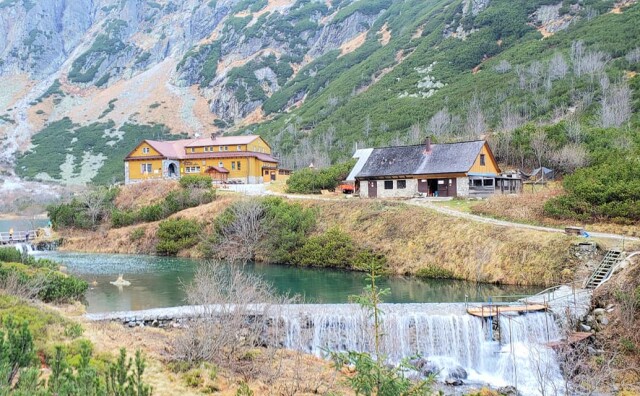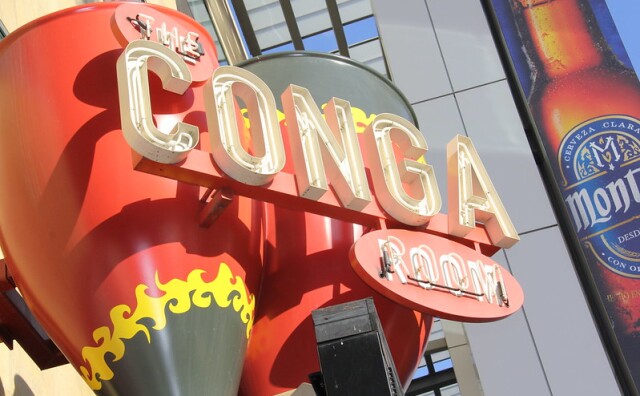The historic 100-year-old Highland Theatre in Highland Park closed its doors late last month. Many Angelenos are mourning the loss, but still holding out hope for a reopening.
This three-screen theater was one of very few movie theaters in northeast L.A., on a street that’s been gentrifying for years. Tickets used to be $10 or less, and you could regularly catch a movie for only $6 on a Tuesday or Wednesday.
-
What candidates can — and can't — say they do
-
Nonprofit's launching fundraiser to keep it afloat
-
USC study documents what residents want from trees
It was also a cultural hub for movie lovers and filmmakers, and for the last 10 years was the home of the Highland Park Independent Film Festival.
Why it closed
Talk about the theater closing goes all the way back to 2022 with a story in The Eastsider LA about a pending sale. The 99-year lease was about to be up last February, but it stayed open.
The theater was reportedly bought by Cyrus Etemad, who also owns Highland Park Bowl and other real estate along the Figueroa Corridor in Highland Park. Etemad let the theater’s operator, Dan Akarakian, stay rent free for another year, and that year is up.
But still the news of the closure caught employees and the neighborhood by surprise.
Denise Hernandez, who works at her father’s restaurant, Antigua Bread, remembers the many times she’d eat at the restaurant before catching a movie with her little brother. “It's a core memory for us ... And I didn't even know it was leaving,” she says.
The Highland Theatre’s history
The Highland Theatre is a proper movie palace with more than 1,400 seats (that’s bigger than the TCL Chinese Theatre in Hollywood). It opened in 1925 and was designed by the same architect who did the Vista in Los Feliz and the Rialto in South Pasadena.
The area used to be a booming theater district, but as historian and film professor Ross Melnick explains, “Today the theater is all that's left of this once booming suburban theater district. By the 1950s, demographic shifts, the rise of television and other factors began impacting local theaters.”
Highland Park's Franklin Theatre closed in 1952, the Park Theatre closed in 1963, and the Highland itself struggled into the mid 1970s.
Like many theaters at the time, in the 70s, a new owner started screening adult films as a way to stay afloat and bring in more money, but that caused protests. According to Melnick, picketers, including local nuns, carried signs reading, "Decent movies for decent people. Shame, shame, what a disgrace. Get this filth out of our face." and the Highland Theatre did close for almost a year.
In 1975, the Akarakian family bought the theater, and a few years later they changed the space from a single screen movie palace to a triplex. To do that, they closed off a vintage balcony space and reduced the capacity to about 500 seats.
In 2022, Etemad bought the theater and according to the L.A. Times, he said his priority is to preserve the venue, and is currently looking at cinema and live music uses.
And the community is hoping that that’s the case.

Not just a movie theater
Local filmmaker and actress Marita De La Torre, featured in the 2024 Sundance film Ponyboi, is one of the founders of the Highland Park Independent Film Festival, which has been running for the last 10 years out of the Highland Theatre.

De La Torre was immediately drawn to the theater. “Give me a grand dame of a theater and I’m there,” she says. The Highland Theatre has been so beloved by the festival organizers that several team members are working on a documentary about its history.
HPIFF’s tagline is “Film For the People,” and their festival’s mission is to bring mentorship to local schools, give independent filmmakers a platform for their work, and facilitate community and networking between creatives in Northeast L.A.
De La Torre says that so many below the line and behind the scenes folks in the film industry live in Highland Park, and the community has rallied around them. Local bars like the Greyhound and the Offbeat have been major supporters. She says “we were able to survive because the community said ‘This is a good thing. This is something we want here.’”
While De La Torre isn’t sure where the fest’s home will be this fall, she’s certain they’ll find a space, and remains hopeful it might even be in the Highland Theatre again. In the meantime, they’ll be hosting free community film screenings in the nearby Tierra De La Culebra park.
Losing local movie houses
Without the Highland Theatre, Northeast L.A. is becoming more of a cinema desert. The closest first-run movie theaters are in Pasadena or Glendale, and while repertory screenings at Vidiots are just around the corner in Eagle Rock, there are no more neighborhood options.
The closure of Highland Theatre comes on the heels of other major movie theater news in the city. The Gardena Cinema’s pivot to a non-profit model and repertory screenings is what’s kept the theater running in the South Bay, and the Fox Village Theatre in Westwood survived due to major celebrity intervention.

Losing the theater creates a hole in the neighborhood — where once you could have gone to many of the restaurants and bars in the area before or after a movie, there’s one less light on Figueroa now.
A comeback?
In 1991, the theater was designated as a historic cultural monument by the Los Angeles Cultural Heritage Commision — that protects its exterior from significant changes. And that vintage balcony, original ceiling, murals, and other elements hidden on the second floor during the triplex renovation are still there, and could be part of a future restoration.
Given what the new owner Etemad has said about utilizing the theater for cinema or live music, there’s a high chance that the Highland Theatre won’t go the way of the Tower in DTLA and end up an Apple Store.

And with gentrifying going on in the neighborhood for years, there’s still worry that the neighborhood will keep losing cultural hubs. As Marita De La Torre says, “we're hoping that it remains a theater and that, perhaps, it is brought back to its original form.”
The Highland Theatre occupies a central spot on a bustling walkable street, packed with restaurants, bars, and the bowling alley. A movie theater seems primed to do well, with the right programming and ticket price, and if it does reopen as a theater, it’d maintain the experience of a neighborhood night-out that so many indie theaters make possible.
And for now at least, it sounds like this might be more of an intermission than an end for the Highland.







